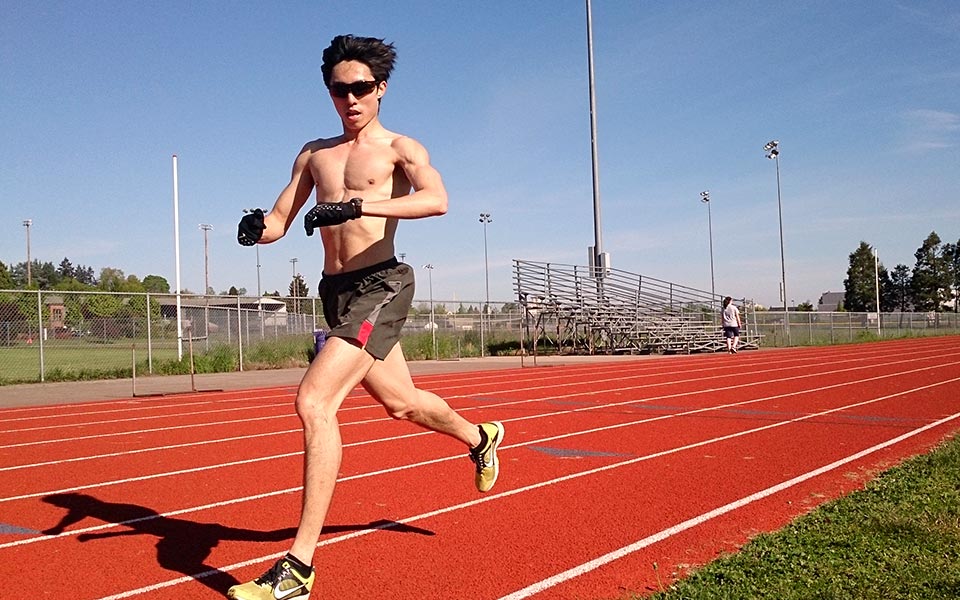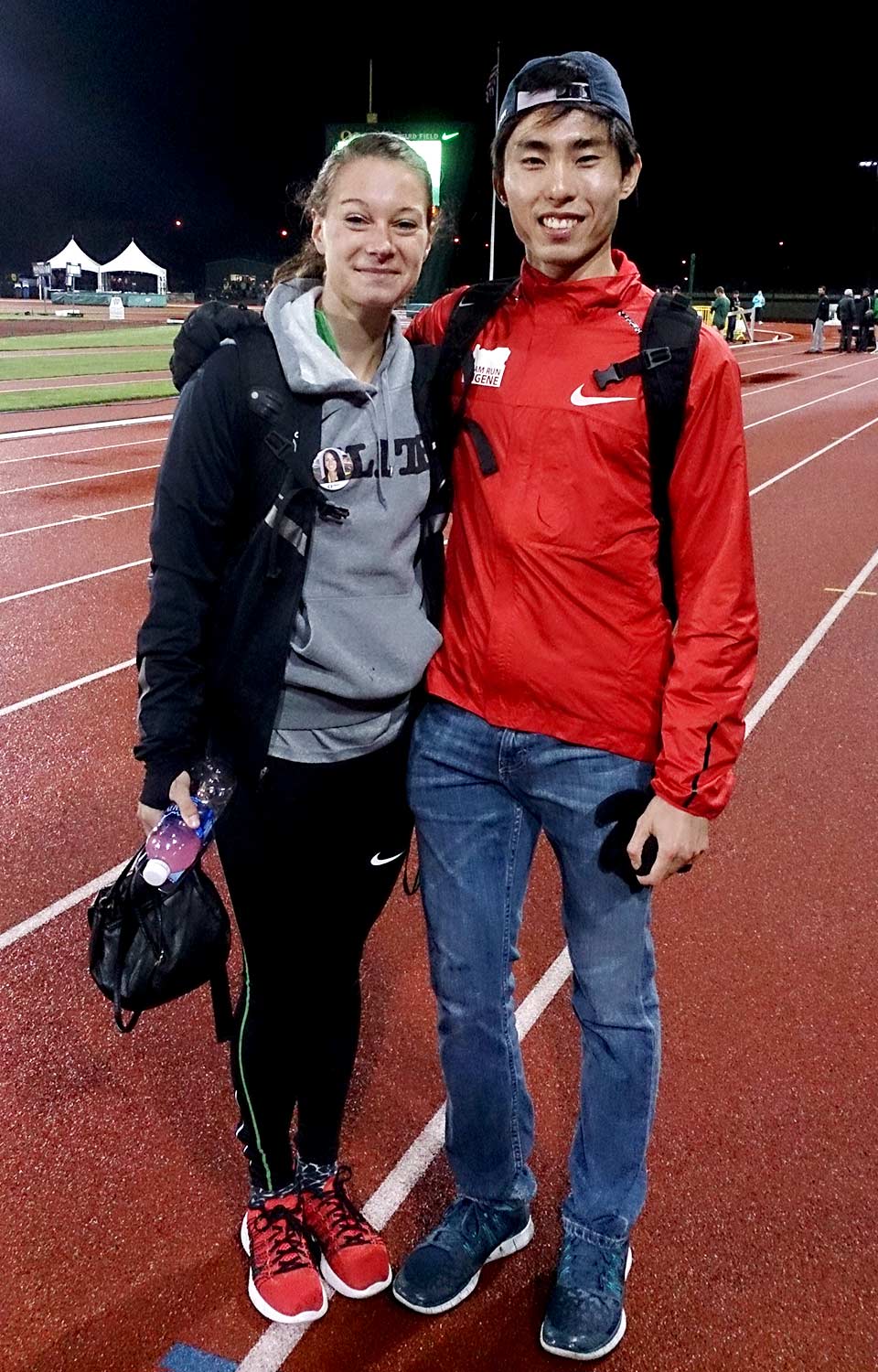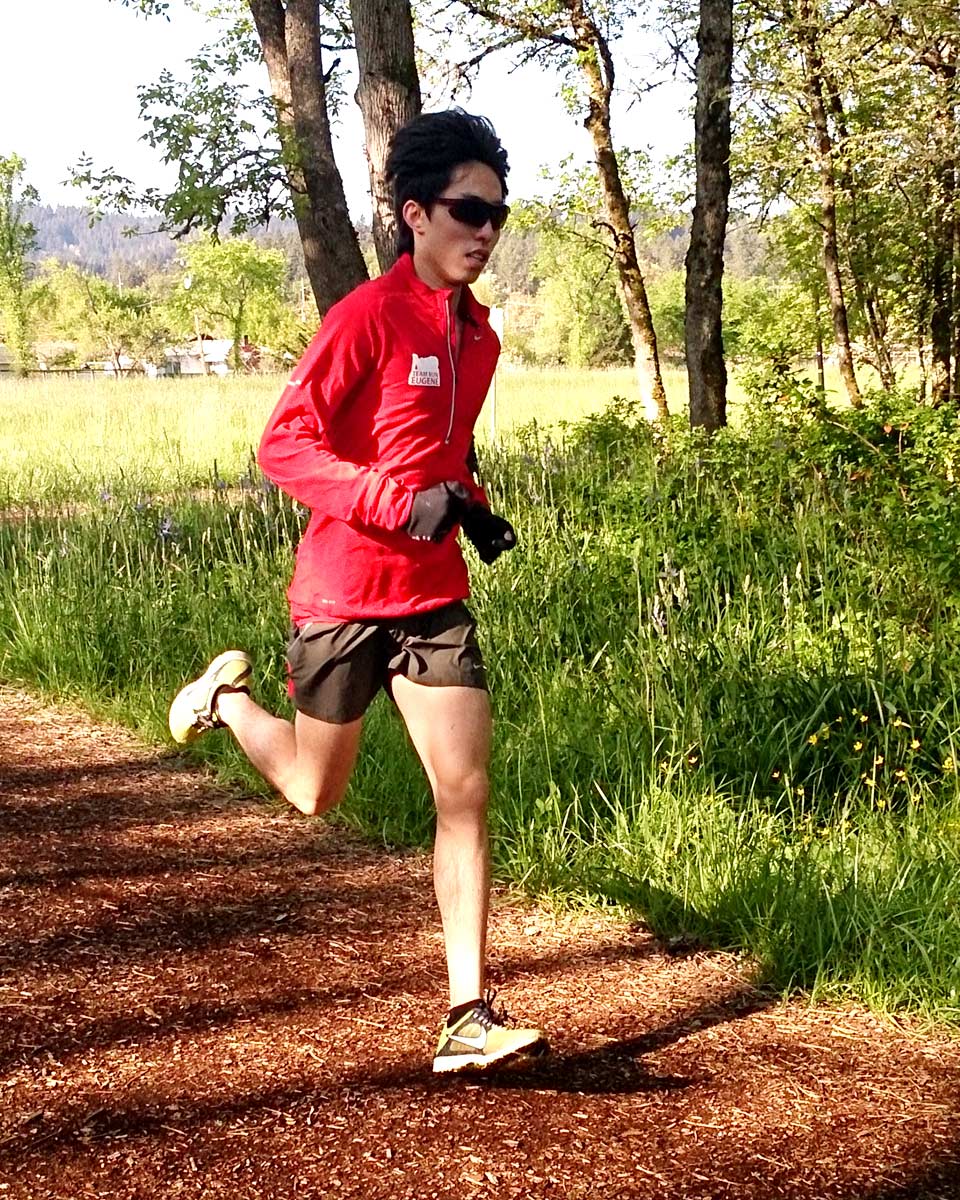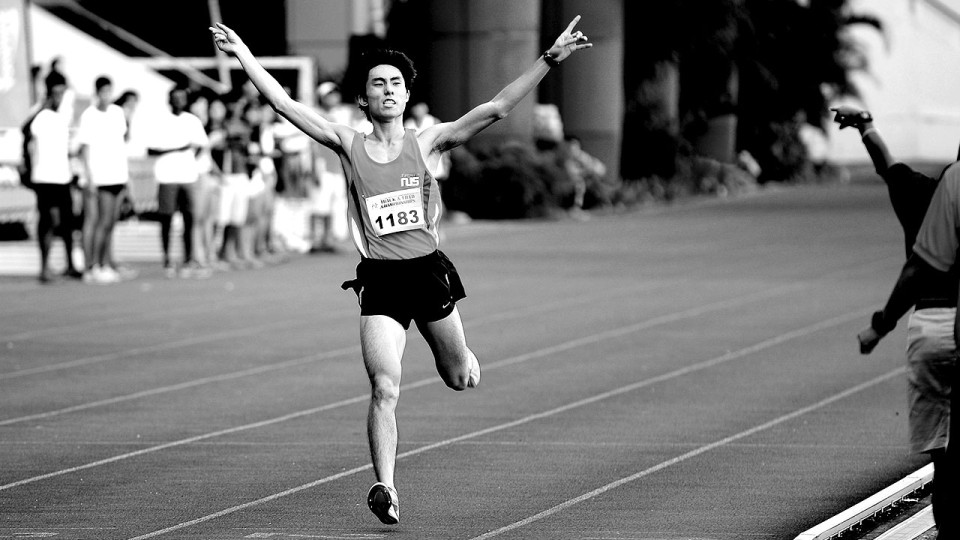First picking up running 10 years ago, Guillaume Soh Rui Yong has recently made headlines as 1 of only 2 Singaporeans who have ran a half-marathon in under 70 minutes, the other being SEA Games Gold medal athlete Mok Ying Ren.
A Sport Singapore academic scholar and a competitive distance runner specialising in the 10,000m distance, Soh attended an exchange programme in Eugene, Oregon. Deciding that training overseas amongst world-class athletes would be an opportunity too good to miss, he is currently pursuing a Business Administration degree with a concentration in Sports Business at the University of Oregon.
Soh also trains with Team Run Eugene under the tutelage of 2008 Olympian, Ian Dobson. Smashing 4 personal bests in 6 months, Soh is now aiming high: he aims to break Singapore’s national records for both the half marathon and 10,000m. He shares with RunSociety on his race preparations, and the possibility of tackling the full marathon distance in future.

Q. You ran a personal best of 69:15 in January’s Cascade Half Marathon in Oregon, USA. Barely two months later, you went on to break that personal best, finishing at 68:18 at the IAAF World Half Marathon Championships in March.
What was going through your mind that day?
I had a long trip and huge jet lag that accompanied in my flight from the USA to Denmark, so I just hoping to run as well as I could under the conditions and sneak away with a personal best.
Having an old friend, Mok Ying Ren, in the race helped as we could run with each other for the first half of the race before I started to pull away from him at the 13km mark. It turned out to be a fun race with some great athletes, and that helped me to a massive personal best time.
Q. We all know that what you see on race day is the result of months of hard work and preparation. What were the factors that led to you being 1 of only 2 Singaporeans to run under 70 minutes for the half-marathon?
Training harder and recovering better than I ever used to. I ran 7 to 9 times a week and did core strengthening in the gym twice a week. Nutrition-wise, I learnt to cook my own meals and control what goes into my food.
That way, you eat less chemicals and junk and ensure you get the carbo and protein required for maximum recovery before the next session. Singapore food, while tasty, is not always the best thing for runners!
Q. After the IAAF meet, you said you’re going to try to break the Singapore Half Marathon record in July.
You’re also aiming to break Singapore’s 10,000m record time of 31:19. This record was set by P.C. Suppiah over 40 years ago, and no runner has broken his record since.
Those are mighty challenges indeed. How are your preparations coming along for them? Any secret weapons up your sleeve?
Preparations are going well. Coming back from half marathon training, I recently ran 15:08 for 5000m, which is faster than Suppiah’s personal best of 15:10.
Though 15:08 was a milestone performance, it was run off a large base of endurance work without much speedwork, and I am confident of running well below 15 minutes when I finally have time to get that speedwork in.

This perhaps shows that I have an advantage over Suppiah in terms of speed, and that combined with my endurance shown at the half marathon means that I have a good chance of hitting my best at the 10,000m – an event right in the middle.
Of course, there is a reason that Suppiah’s record has lasted so long. It is a tough one to break, and I’m not underestimating the size of this challenge. But if I prepare well, I am confident that I can break it.
Secret weapons? Eat well, sleep enough, and train every day, sometimes twice a day… and my Nike Zoom Matumbo 2 spikes. Lightest spikes in the world. 😉
Q. How did you end up studying and training in Eugene, Oregon?
My GCE A-level results were sufficient to earn me a scholarship from Sport Singapore (then known as the Singapore Sports Council) for my university education. I spent a year at the National University of Singapore (NUS) before going on an exchange programme at the University of Oregon to explore their world-class sports business classes, something which is not offered in Singapore.
Realising that my learnings from UO’s sports business programme would be a much better fit to my future career in Sport Singapore, I decided to apply for a transfer to the programme to become a full-time student at UO. I was offered a place at the university, Sport Singapore approved the transfer, and the rest is history.

Q. Your specialty distance is the 10,000m. But you’ve shown to be really talented at longer distances too. Any plans to tackle the 42.195km distance competitively?
I will discuss this with my coach once track season is over. I was just experimenting with the half marathon distance this year, but that went extremely well, and it is being increasingly clear that my strengths grow as the distance gets longer. I am currently building my foundation and speed in the shorter events, and believe that the marathon is where I can really achieve some special things.
To give a teaser, it might happen this year, in the city where Michael Jordan became famous.
Q. What’s your next big race?
The Portland Track Festival (14-15 June). I am preparing to break the national 10,000m record (31:19) at this meet.

Q. Nutrition plays a large role in athletic performance too. Do you follow a strict diet, or do you just eat whatever comes?
I prepare my own food most of the time, and though I don’t follow a strict diet, I use common sense and avoid food that is too oily, too fatty or processed foods.
I include lots of fruits and vegetables in my diet for antioxidants and vitamins, meat such as chicken and beef for protein after training for muscle recovery, as well as carbohydrates such as pasta and rice before training to fuel my body.
Q. Could you share with us a little about your weekly training schedule?
I currently run no less than 7 times a week and usually no more than 9 times a week, covering 80 to 90 miles (128km to 144km) a week. All of my long runs and hard sessions are done in the morning, when I am at my freshest and can put my best effort in.
I wake up at 6.45am everyday to get training done before school, and twice a week, I get up at 6.15am to get strengthening work done in the gym before going for a run. In between or after classes, I try and get a nap to help my body recover. Naps also make the second run of the day much easier if it is a double session day for me.
Q. What’s the biggest difference for you between training here in Eugene and training in Singapore?
Training in Eugene under a new coach and with new company has allowed me a refreshing new training environment. There are many world-class runners in Eugene too, and being around them every day just gives me the belief that I can train more and train harder. I gradually raised my mileage since arriving from Singapore, and now run more than double the volume I was doing back home.
Eugene also has a more natural environment and more forest trails that make runs more enjoyable, and the soft surfaces are also better for my legs. Weather can be a challenge though, as it can get pretty cold and miserable in Eugene, and I took a while to adapt to that coming from sunny Singapore.

Q. Over the course of your competitions abroad, you’ve met many athletes and runners. Any advice they gave that stuck with you till now?
I have met many athletes and runners, but the only advice that I really relate to is the advice and guidance of my coach, Ian Dobson, on a day to day basis.
Ian has had great experience as an elite runner, and we work well together. I believe that he has what it takes to guide me to achieve great things for myself and Singapore, and we are very fortunate to have him on our side.
You heard it here first on RunSociety – Soh will be attempting to break Singapore’s 10,000m record at the Portland Track Festival on 14-15 June. We wish him all the best!





